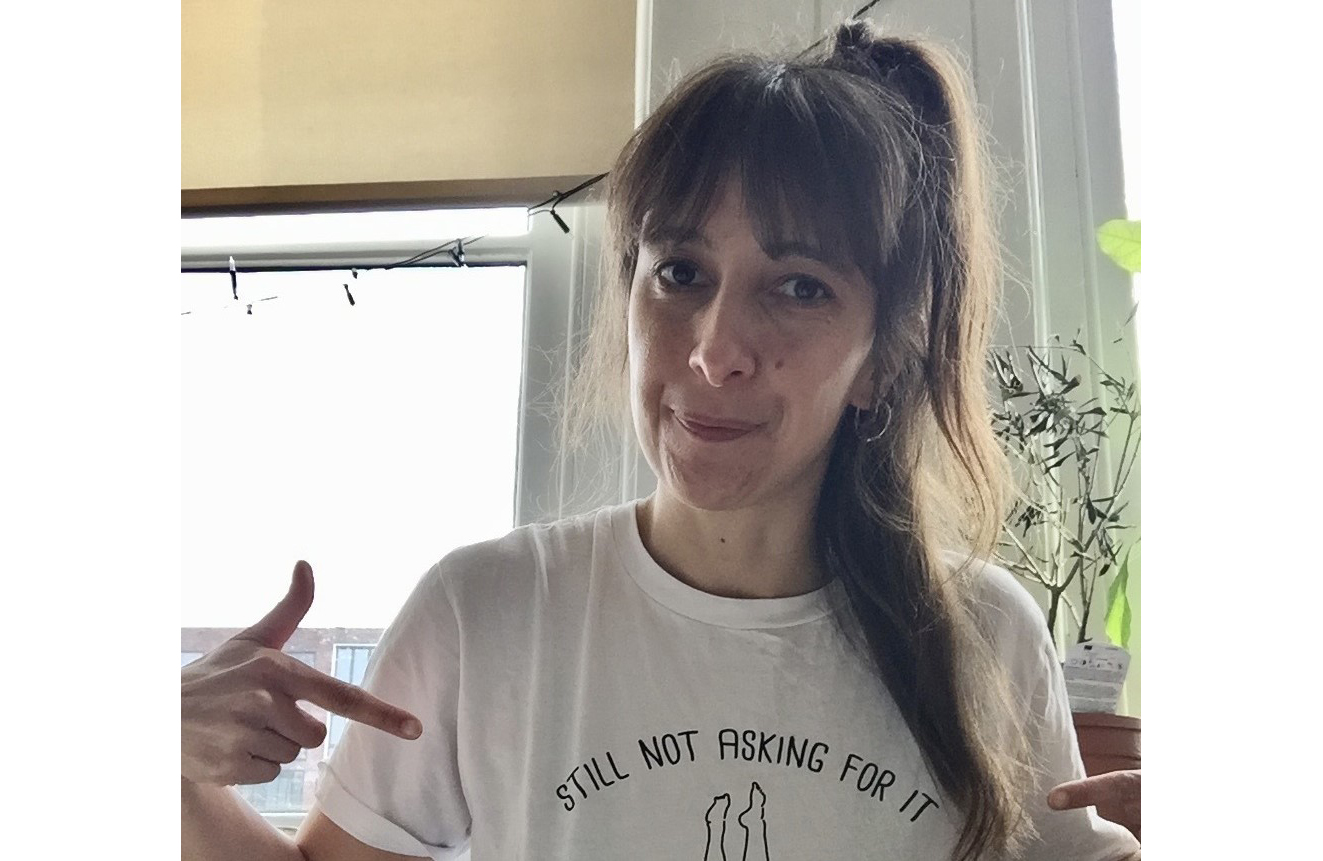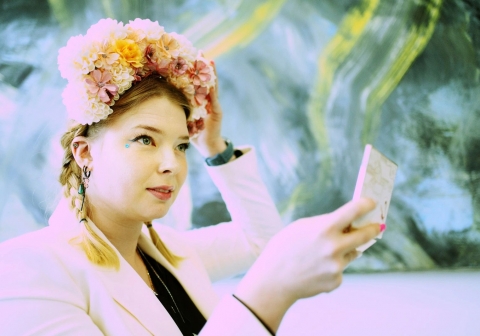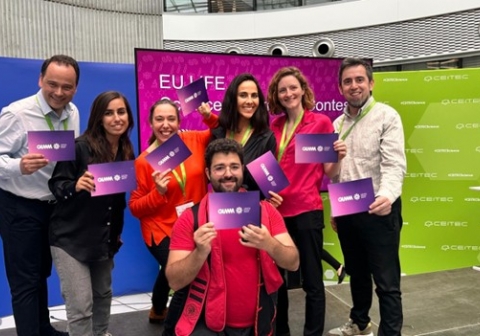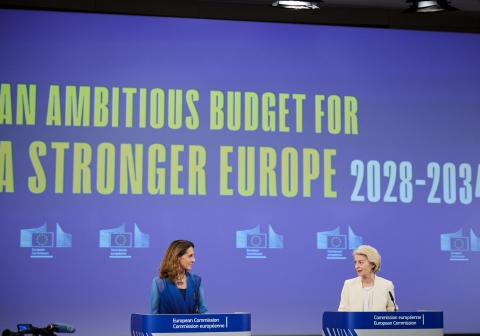Women in EU-LIFE: Joana Faria Da Silva, Postdoctoral fellow at NKI

Could you tell us a bit about your research?
My research focuses on non-canonical roles of ribosomes and how they can affect stem cell fate. We have traditionally seen ribosomes as passive machines whose function relies solely on decoding genetic information to produce functional proteins. However, ribosomes are highly complex molecules that can respond to different stressors by fine-tuning a variety of cellular processes. In our latest article, we have shown that ribosomes can sense when we have a shortage of amino acids in the intestine, and they can alert stem cells that something is wrong, allowing them to change their identity and survive. Considering the importance of stem cells to cancer and other diseases, we are very excited to pursue the therapeutic potential of these findings.
Could you take us back to the beginning of your scientific career? What got you interested in your field?
Since I can remember I’ve always had a love for science. After doing a bachelor in Applied Biology and a masters in Oncology, back in Portugal, I quickly realized that my interests lay in fundamental research. I then moved to Barcelona to do a PhD, in which I characterized a new protein that plays an important role in aging and stem cell maintenance. Towards the end of the project, we discovered that all of this was happening via manipulation of ribosome dynamics. This non-conventional finding really got my attention and so I decided to move to Amsterdam and join Liam Faller’s group, at the NKI, to pursue these novel roles of ribosomes and help understand how we can use them to control stem cell fate.
What would you have liked to be if you were not a researcher? Is that field related in any way to your current work?
So very early on, when I was about 5 years old, I wanted to be an astronaut. The thing that I found most appealing about it was this adventure into the unknown and so even though I didn’t delve into exploring the macro universe that surrounds us, I ended up focusing on the micro cosmos which exists inside all of us by trying to contribute to our knowledge on how life came about. In my teenage years I also took an interest in investigative and political journalism, which still lies with me to this day, as I try to incorporate it in some of the science policy and communication initiatives that I am a part of.
You were awarded with a long-term EMBO fellowship a few years ago. How does it feel to be recognized in such a prestigious manner?
It is an incredible honour to see our work recognized in this way. Liam had started his group just one year prior to me joining, and so I was incredibly lucky that he gave me all the freedom to incorporate my views and ideas into his line of research, while also supporting and guiding me through this process.
To be awarded with an EMBO fellowship showed us that we were on the right path and, particularly for me, it helped me to feel more secure and confident about my ideas. These fellowships are incredibly important not only in the sense that they fund you, as a scientist, but also provide an amazing platform for international networking.
As an EMBO fellow, I was able to present my work in renowned conferences and attend workshops on different areas like leadership, management and scientific illustrations, all of which greatly improved my work as a scientist.
Do you think women studying and working in STEM face specific challenges?
Definitely. When it comes to STEM, particularly in academia, you’re led to believe that this is a meritocracy-based system where regardless of your background you have an equal shot to succeed. However, this is far from reality.
Unfortunately, this is a system that still mainly values traits which are typical of the white hetero alpha-male, and thus end up excluding groups outside this circle.
For instance, academia romanticizes “hard work” as a readout for success. You are often told that if you are ambitious, you need to put in extra hours (without extra pay) to achieve greatness. Besides being misleading, comments like this foster a toxic culture that excludes for example caretakers, which are mostly women. It’s important to mitigate these comments and create a more inclusive culture.
Despite some recent efforts, women are still hugely misrepresented in all STEM fields, particularly in higher roles.
Just as an example, I am the only female postdoc in my department, while there are 10 male colleagues with the same job description. Now what people sometimes struggle with understanding is the implications this has: it happens quite often, for instance, that I go through a handful of meetings throughout the day where I am the only female. Studies have shown that women are interrupted 50% of the time while talking in work meetings, and this is mostly done by men. And it’s true, it happens all the time, but for some reason, even when I bring it up, people tend to either not believe it or they don’t take it seriously. And so as a woman, you are sitting in a room where no one looks like you and no one seems very interested in what you have to say. Now this is just a “small” example of how misrepresentation worsens the imposter syndrome and confidence gap women deal with. The situation gets way worse when we look at women of colour, disabled women and queer folks. We still have a long way ahead and acknowledging the problem is the first step towards solving it.
There has been a lot of initiatives in the last decades to improve conditions for women in STEM. Where do you think we stand? Can you elaborate?
While I think we should celebrate the progress we have achieved so far, I also believe it is important to acknowledge we are still quite far from equity and fairness when it comes to representation of women in STEM.
This is a systemic problem that arises very early on, as a result of both societal expectations when it comes to gender norms, and an educational system which heavily excludes young girls. And systemic problems can only be fixed using systemic solutions.
We need gender-equitable policies that foster and empower women instead of excluding them. It’s not only about getting the numbers up. It’s about fostering an inclusive culture where both women and men feel comfortable sharing their insights and opinions.
What message would you give to other women who are interested in pursuing a career in STEM?
STEM is not male. Nor is it straight, cis, white or able. STEM is for everyone and your thoughts and ideas matter.
Don’t try to fit yourself into someone else’s mould. Surround yourself with people you admire and that will help you progress because we all move quicker if we work together. Finally, recognize and advocate for other female scientists and their needs. As women, we constitute half of the world population, so it’s time to stop seeing ourselves as a “minority” and demand our seat at the table.
- Joana Faria Da Silva is also co-founder of the Green Labs and the Diversity, Equity & Inclusion Committee at NKI.



